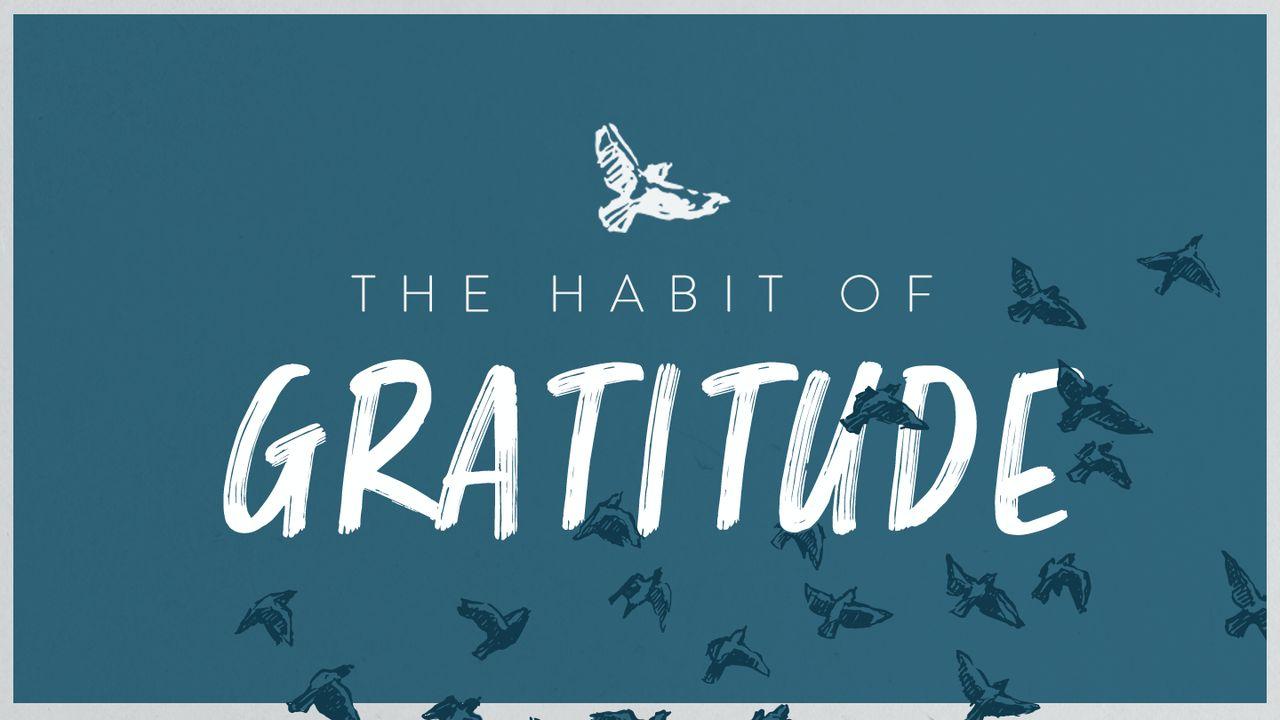The Habit of GratitudeSample

In the book of Romans, Paul lays out two paths we can walk in: gratitude or ingratitude. We will either be people who give thanks or grumble. They are not destinations, but they’re the paths directing our steps either toward God or away from Him.
Romans 1 characterizes the person far from God by their ingratitude, forgetfulness, idolatry (false worship), and disobedience, whereas Paul describes the godly person by their gratitude, remembering, worship, and obedience.
Romans 12 builds on the rich theology of 1–11 and transitions into how we should live in light of God’s saving grace. But when we look deeper at Romans 12, we see how Paul picks up his language from Romans 1:18–23 and contrasts followers of God (Rom. 12) to those who reject God (Rom. 1). Thanksgiving is central to this comparison. Gratitude leads to glorifying God and growing in godliness, whereas ingratitude yields ignorance of God and idolatry against God.
Throughout the Bible, ignoring God through ingratitude is linked to idolatry, which takes place when people walk away from God and follow false gods. To be ungrateful to God and forgetful of God is to be foolish, and a biblical fool is always following a false god.
Failure to give thanks by ignoring God expresses a darkened heart and shuts a person in greater darkness. A life of ingratitude indicates someone is ignoring or rejecting the knowledge of God. Hearts full of grumbling, criticism, complaining, and ingratitude are not full of grateful joy in God and the gospel. The longer we walk down the path of ingratitude, the further we stray from nearness to Him.
If Romans 1 puts before us the fool who walks in ingratitude and walks away from God, Romans 12 helps us see how God’s followers choose gratitude as an avenue of worship and a path to obedience.
Paul’s language in chapter 12 of being a living sacrifice is an act of gratitude. It draws on the thanksgiving offering, or sacrifice, from Israel’s religious life and worship (Lev. 7:11-16). The Old Testament thanksgiving offering transitions into a living sacrifice in the New Testament. We no longer offer animals, grains, or spices. We offer ourselves. Our offering isn’t something dead but something alive. It’s not something apart from us; it is us. We express our worship through a life of thanksgiving, including obedience to God and joy in God.
There are two ways to live: grateful or ungrateful. Whichever one we walk in will either draw us near or distance us from God.
What do you have from God? What blessings has God given you? Where has He shown you kindness, mercy, grace, love, and faithfulness? What trials and struggles has He carried you through? What has God taught you about who He is or who you are in Christ?
About this Plan

This seven-day plan outlines simple habits that lead to a life of gratitude. Whether it's training our tongue to say thanks or learning daily habits to increase gratefulness, this plan will boost your awareness of the goodness around you and help you live a life of gratitude.
More
We would like to thank Moody Publishers for providing this plan. For more information, please visit: https://www.moodypublishers.com/the-grumblers-guide-to-giving-thanks/
Related Plans

The Invitation of Christmas

Marry Me

Parenting Through God’s Lens: Seeing Your Child the Way God Does

The Single Season

Grace & Truth

Even in the Shadows: Living With Depression

Real. Loved. Strengthened: 7 Days With God

Where Are You? A Theology of Suffering

Deep Roots, Steady Faith
